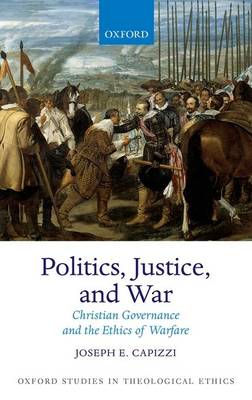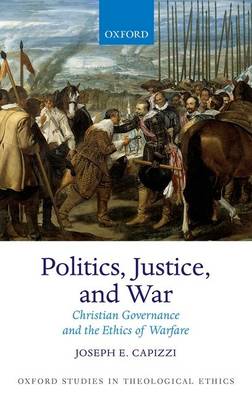
En raison d'une grêve chez bpost, votre commande pourrait être retardée. Vous avez besoin d’un livre rapidement ? Nos magasins vous accueillent à bras ouverts !
- Retrait gratuit dans votre magasin Club
- 7.000.000 titres dans notre catalogue
- Payer en toute sécurité
- Toujours un magasin près de chez vous
En raison de la grêve chez bpost, votre commande pourrait être retardée. Vous avez besoin d’un livre rapidement ? Nos magasins vous accueillent à bras ouverts !
- Retrait gratuit dans votre magasin Club
- 7.000.0000 titres dans notre catalogue
- Payer en toute sécurité
- Toujours un magasin près de chez vous
168,45 €
+ 336 points
Description
The just war ethic emerges from an affirmative response to the basic question of whether people may sometimes permissibly intend to kill other people. In Politics, Justice, and War, Joseph E. Capizzi clarifies the meaning and coherence of the "just war" approach, to the use of force in the context of Christian ethics. By reconnecting the just war ethic to an Augustinian political approach, Capizzi illustrates that the just war ethic requires emphasis on the "right intention," or goal, of peace as ordered justice. With peace set as the goal of war, the various criteria of the just war ethic gain their intelligibility and help provide practical guidance to all levels of society regarding when to go to war and how to strive to contain it. So conceived, the ethic places stringent limits on noncombatant or "innocent" killing in war, helps make sense of contemporary technological and strategic challenges, and opens up space for a critical and constructive dialogue with international law.
Spécifications
Parties prenantes
- Auteur(s) :
- Editeur:
Contenu
- Nombre de pages :
- 240
- Langue:
- Anglais
- Collection :
Caractéristiques
- EAN:
- 9780198723950
- Date de parution :
- 15-07-15
- Format:
- Livre relié
- Format numérique:
- Genaaid
- Dimensions :
- 218 mm x 142 mm
- Poids :
- 408 g

Les avis
Nous publions uniquement les avis qui respectent les conditions requises. Consultez nos conditions pour les avis.






